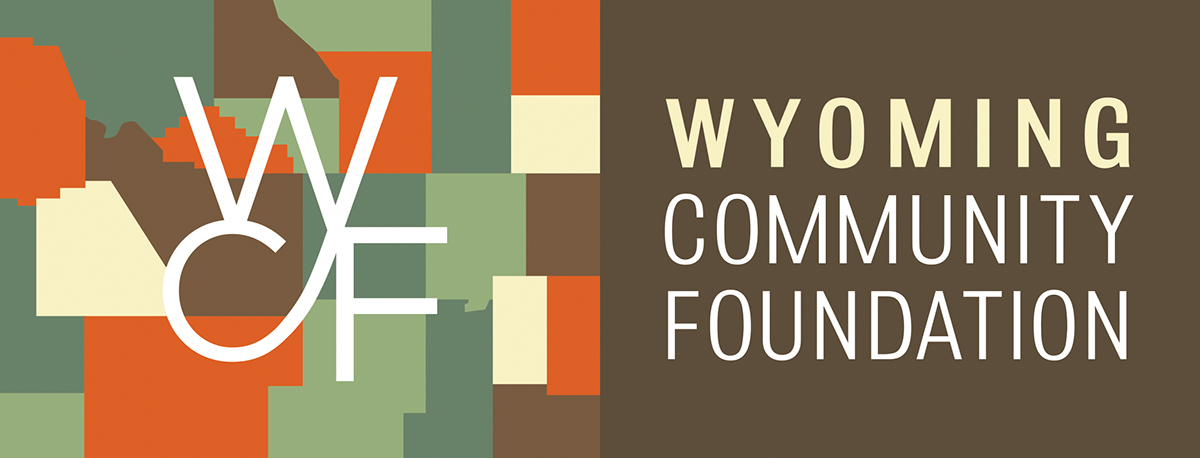
Tips You Can Trust: Your Year-End & Looking Ahead
Year-End Giving Tips, Election Insights, and Estate Tax Planning
Hello from the community foundation, and happy holidays!
As always, we’re committed to keeping you up-to-date on tax and legal developments related to charitable giving so that you can be even more confident in your recommendations to clients. Here are three topics that are rising to the top of the list as 2024 slips away into 2025:
-
- If you only have a minute or two to get up to speed, we recommend reading about WYCF’s important year-end giving reminders.
- You and other financial and tax advisors are on pins and needles about what might happen with the tax laws and especially the estate tax exemption. The community foundation offers factors to consider as you advise your clients … and as you continue to watch and wait.
- Diving deeper into your clients’ charitable planning strategies is a good use of your time right now, especially revisiting the advantages of naming a fund at the community foundation as the beneficiary of an IRA.
Whether we are working together to structure a family’s donor-advised fund, a gift of real estate, endowed support for a favorite nonprofit, or a Qualified Charitable Distribution to a field-of-interest fund at the community foundation, our team enjoys and appreciates every minute. We love serving as your first stop for all things philanthropy.
–Your friends in philanthropy, WYCF
Must-Know Tips for Clients’ Year-End Giving
 We know you’ve got a lot on your plate as the end of the year approaches. Even if charitable giving does not appear on the surface to be a burning issue in client meetings, it’s still crucial that you keep in mind a few essential charitable giving techniques because your clients do care. Please scan these three important techniques and reach out to our expert staff on any matter related to charitable giving.
We know you’ve got a lot on your plate as the end of the year approaches. Even if charitable giving does not appear on the surface to be a burning issue in client meetings, it’s still crucial that you keep in mind a few essential charitable giving techniques because your clients do care. Please scan these three important techniques and reach out to our expert staff on any matter related to charitable giving.
-
- Encourage clients to consider giving highly-appreciated stock, not cash, to their funds at the community foundation, thereby maximizing tax benefits.
- Help clients evaluate a “bundling” or “bunching” technique to make gifts to donor-advised funds at the community foundation, exceeding the currently high standard deduction to be able to itemize. Then, donor-advised fund assets can be used over the next few years to support clients’ favorite charities.
- Help clients who are 70 ½ and older make Qualified Charitable Distributions (“QCDs”) directly from IRAs to designated or field-of-interest funds (donor-advised funds are ineligible recipients) at the community foundation–up to $105,000 per spouse. Plus, QCDs satisfy RMDs!
Reach out to the Wyoming Community Foundation team today!
What Now? Why the elections won’t immediately change tax laws
Many eyes are on the election aftermath seeking clues about what might happen to the tax laws. Of particular interest is the much-analyzed sunset of the higher estate tax exemption, scheduled for the end of 2025 absent intervening legislation. “Absent intervening legislation” is the key, of course. The November 2024 elections will not immediately change estate tax laws, and it’s a long road from here to there.
For starters, the new Congress will not be sworn in until January 2025, and only after the session begins will Congress initiate the budget reconciliation process which is ultimately required to make tax law changes. The budget reconciliation process typically starts with the President submitting a budget to Congress. Then, both chambers of Congress pass budget resolutions with reconciliation instructions. Then, committees draft legislation to meet the budget targets, and the budget committees consolidate the bills into a single omnibus bill. Then, each chamber votes on its respective omnibus bill.
What all of this means is that the status of the estate tax exemption is still very much up in the air.
This means that financial, tax, and estate planning is going to be difficult for many more months. With the estate tax exemption set to drop from $13.61 million per person in 2024 to approximately $7 million per individual on January 1, 2026, a lot is at stake. Should a high-net worth taxpayer start making aggressive gifts now to family members and a donor-advised or other type of fund at the community foundation, anticipating that the sunset will indeed occur? Or take a “wait and see” approach?
Planning is further complicated by the dangers of waiting until the last minute. Not only is it tough to pull off a complex estate plan or business succession plan quickly, but it’s also dicey because the IRS likely will be on the lookout for situations to invoke the step transaction and reciprocal trust doctrines.
So what can you do?
-
- First and foremost, if you are working with charitably-inclined families who would be impacted by the estate tax exemption sunset, please reach out to our expert staff right away to start looking at options.
- And if you’re unsure whether a client has an interest in charitable giving, you absolutely must ask them. It’s always important to talk about charitable giving, and especially right now when the stakes are so high.
We look forward to many conversations with you and your clients as estate tax developments unfold!
Estate Tax Planning: What’s your next move?
As you and other tax planning professionals watch and wait for news on the potential estate tax exemption sunset, it is important to keep charitable planning high on your list of strategies that could help blunt the impact of a lower estate tax exemption if the sunset were to occur. That’s because gifts to charities are deductible from a client’s taxable estate. Even during this era of uncertainty, be sure to keep in mind an important planning technique for your clients who prioritize philanthropy that delivers multiple tax benefits and offers some degree of flexibility: Naming a charity, such as a fund at WYCF, as the beneficiary of an IRA or other qualified retirement plan.
Here’s why this is such a powerful technique:
Income tax savings: When your client designates a fund at WYCF as the beneficiary of an IRA, the fund receives the assets without having to pay income taxes. This is because charities are tax-exempt entities, allowing them to receive funds from qualified retirement accounts tax-free after your client’s death. This is not the case with qualified retirement plans flowing to heirs; the income tax hit can be significant.
Estate tax deduction: Naming a charity as a beneficiary of a retirement plan results in an estate tax charitable deduction, which reduces any applicable federal estate taxes. This means that the full value of the IRA can flow into your client’s fund at the community foundation free from the estate tax burden.
Fall Newsletter: Small Communities, Big Hearts
Thanks to a Geographic Field of Interest Fund set up by generous donors in Big Horn County, 4-H youth have more opportunities for education and community engagement. A Field of Interest Fund is just one of the many ways donors can give back today and far into the future. Learn more about these fund types here.
Flexibility: Clients can revise IRA beneficiary designations anytime during their lifetimes. So, as the end of 2024 draws closer, a client can update an IRA beneficiary designation to name a fund at the Wyoming Community Foundation, which would protect against a drop in the estate tax exemption. If the sunset does not occur, the client could of course revise the beneficiary designation to leave a greater portion of retirement plan assets to heirs. Remember, though, that the income tax hit will still apply to proceeds flowing to heirs. That’s why many of your philanthropic clients will choose to leave IRAs to their funds at WYCF even if the estate tax exemption does not sunset. And, of course, many clients truly want to leave a legacy and would love to incorporate charitable giving into their estate plans regardless of what happens with the tax laws. As tax and estate planning advisor, it is your responsibility–and opportunity–to help clients achieve their philanthropic wishes.
Please reach out to our team to dive deeper into the ways you can help your clients fulfill their charitable goals, especially during this time when future tax laws are up in the air. We are here to help!
The team at the Wyoming Community Foundation is a resource and sounding board as you serve your philanthropic clients. We understand the charitable side of the equation and are happy to serve as a secondary source as you manage the primary relationship with your clients. This newsletter is provided for informational purposes only. It is not intended as legal, accounting, or financial planning advice.

